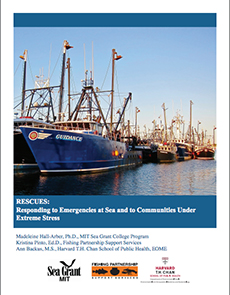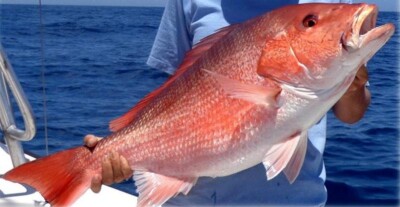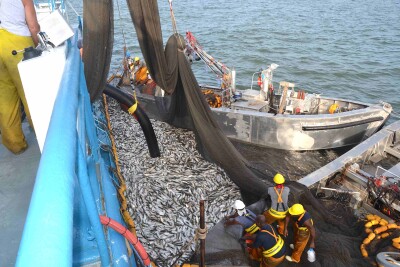Fishermen tend to keep safety high on their list of priorities.
But with the sheer number of rules and safety suggestions out there, it can be difficult to keep everything together. While you might think you have your safety plan down pat, just remember — it’s never just one thing that sinks a boat.
One hole in your emergency plan or a single piece of failing equipment could put in motion a much more dangerous scenario.
Just last week, the Massachusetts Fishermen’s Partnership and Fishing Partnership Support Services, introduced a comprehensive guidebook for dealing with at-sea emergencies. It covers everything from vessel inspections before you leave the dock to who you should call after you’re safe on shore post-trip.
The manual is called RESCUES, an acronym for the title of the manual: Responding to Emergencies at Sea and to Communities Under Extreme Stress.
While the manual covers a lot, the most important piece may be the section that doesn’t have much to do with being out on the water. Chapter 4, titled “The Aftermath,” aims to help prepare individuals, groups and entire coastal communities for a crisis affecting members of the commercial fishing industry, such as the sinking of a boat or the search for crew members lost overboard at sea.
“The idea is that, when a crisis occurs, folks in our fishing ports will be able to consult the manual and know right away how the Coast Guard and other authorities are responding — and where they can turn for reliable information and support,” said J.J. Bartlett, president of Fishing Partnership Support Services, in a press release.
Bartlett said, the manual describes “how families may access services and resources that exist to help them during these terrible situations and for long afterwards.”
The chapter covers topics like how to deal with telling the families of lost crew members, talking to the media about an accident, recovering a vessel or body from sea and planning a memorial service. Insurance, legal and counseling are also discussed at length in the chapter.
“To me, RESCUES is about peace of mind,” said Angela Sanfilippo, president of both the Gloucester Fishermen’s Wives Association and the Massachusetts Fishermen’s Partnership, in a release. “Many of us who have been involved for years in helping fishermen and their families are in the last years of our working lives and it is good to know that the knowledge and insights we have gained are now gathered in one place for the benefit of future generations.”
On a reflective note, she added, “Working on this manual brought back painful memories of when a fisherman or an entire crew died at sea. That was very hard for us. At the same time, we relived those moments when a fisherman was saved from death because of a smart and courageous rescue. We were heartened by the realization that more lives were saved in the past 40 years than were lost.”
You can fight tooth and nail to make your boat and operation as safe as possible, but something might still happen out at-sea. Whether you’re new to the industry and need a guide, are a veteran looking to brush up on your safety knowledge or have recently suffered a loss, you can check out the manual for free online.
The manual was created in partnership with MIT Sea Grant and the Harvard T.H. Chan School of Public Health.







